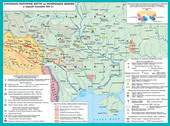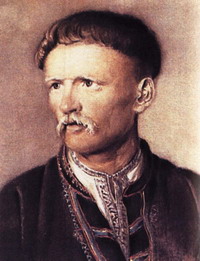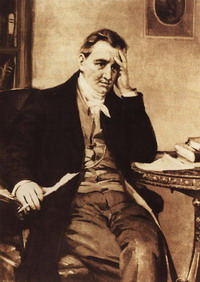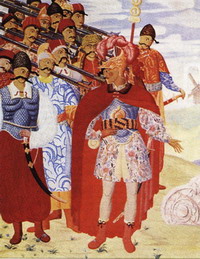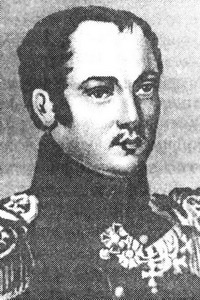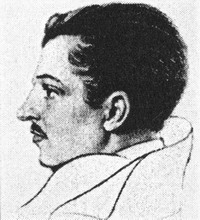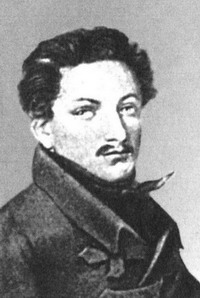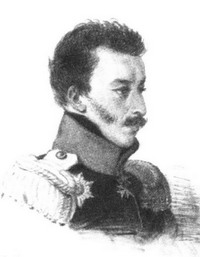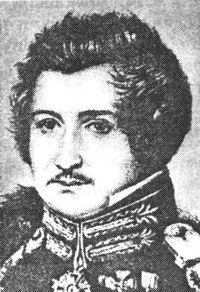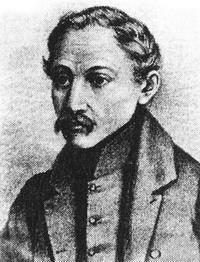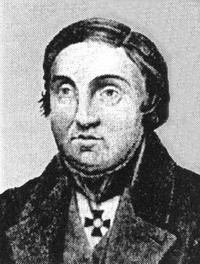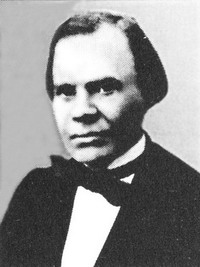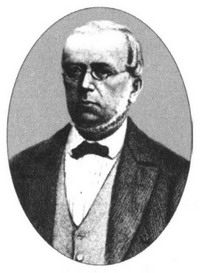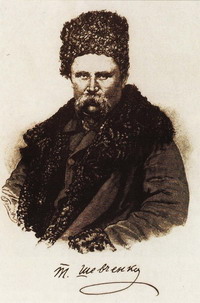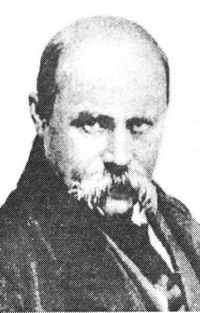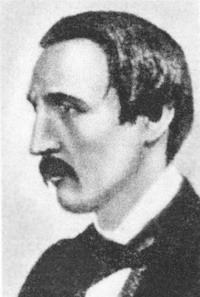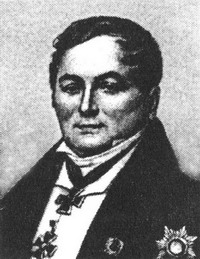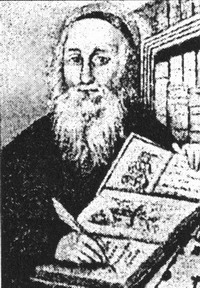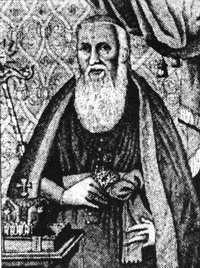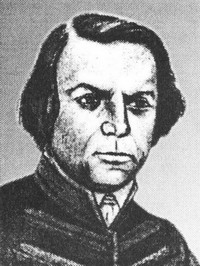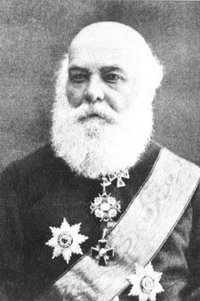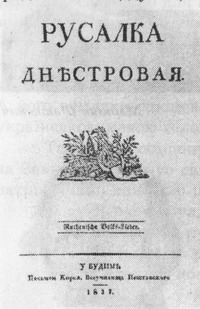Social and political life of Ukrainian lands in the first half of the nineteenth century.
1. Masonic lodges and secret political groups
French Revolution gave rise to fight people for social and political rights. The desire for change swept almost all sectors of society. Throughout Europe, formed various clubs, secret societies, which set a goal to make changes to the existing System. Actively formed liberal, conservative, socialist doctrine, there are political organizations, secret societies, Masonic lodges. All they wanted change. Under the influence of these processes in Ukraine are also beginning to occur secret political society.
The immediate impetus for their formation have served spirits, which entered the Russian officers, nobles after the victory over Napoleon. Returning from a victorious campaign in Western Europe, they have different eyes looked to the Russian reality. The political regime of autocracy and feudal orders strongly contrasted with the ideas, slogans, which proclaimed the French Revolution: "Liberty, equality, fraternity!"
secret society that emerged in Ukraine, cleaned the form of fashion at the time the Masonic lodges. In 1818-1819 he was having such a bed in Kiev ("connected the Slavs") and Poltava ("Love of Truth"), Odessa, Zhitomir, and Kamenetz-Podolsk. Among its members were known Ukrainian actors John Kotljarevs'kyj, Kapnist Vasily, Vasily Lukashevich, and later leaders of the Decembrist movement Pavel Pestel, Mikhail Orlov, Mikhail Bestuzhev-Ryumin. Although the lodges were established in Ukraine, their activities had no Ukrainian national character. One of the objectives that the organizers had set the first secret societies in Ukraine was bringing nobility to the Little All-Russian opposition movement. Ukrainian nobles-Masons do not put forward specific national requirements. Another character had a bed, which acted on the Right Bank Ukraine. Their members were Polish nobleman, not affiliated with the Russian Freemasonry. His main political goal of these lodges considered restoration of Polishs borders in 1772 with many members of Masonic lodges in Ukraine went to the Decembrists' organizations. Ukraine along with St. Petersburg has become a major field of Decembrists - only in these two centers of the Decembrist movement came to an open armed speech against autocracy.
in 1822 Tsarist government prohibits lodges and their members persecuted.
In the 20 years of the nineteenth century. Ukraine comes to the secret political circles. One of the first circle was founded "Little Russian secret society", was chaired by V. Lukashevich. In Society ("Catechism autonomist") proclaimed desire to achieve detachment from Russia and Ukraine to join the revived Poland.
late 1820 at the Kharkov University and High School emerged Nezhinsky secret groups who promoted the banned books, at its meetings have criticized the existing system.
Unlike Livovoberezhnoyi Ukraine, on the Right Bank was not held long-term measures that would set a goal of closer integration of the land in the Russian Empire. The tsarist government tacitly acknowledged the orders that existed during the Commonwealth on the Right Bank Ukraine and left virtually intact the rights and privileges of the local Polish gentry. Much of the right-bank nobles were descendants of Ukrainian families, spolyachenyh after the Catholic faith in XVII-XVIII centuries. They dreamed of restoring the borders of the Commonwealth in 1772 why the first third of the XIX century. Right-bank Ukraine was a Polish terrain revitalization movement.
Polish uprising of 1830-1831 against autocracy was not supported by the Ukrainian population of the Right Bank. The mutiny was quelled. Cossack regiments, formed to defeat the insurgents, was transformed into a regular army, others moved to the Caucasus. The tsarist government closed the Vilnius University and the Kremenets Lyceum. In 1839, on the Right Bank was canceled church union, and all the Greek Catholic believers, forcibly converted to Orthodoxy. Was subjected to repression of Polish gentry.
Right Bank of Ukraine for 1830-1840's was a battleground between Russian and Polish influences. Both sides gathered together in denying the right of the Ukrainian people to free self-development.
2. Decembrist movement in Ukraine
loss of hope for the liberalization of the tsarist autocracy, the abolition of serfdom, increased response after the 1812-1814 war, he contributed to the growth in Russia, respectively, and Ukraine opposition sentiment. Leading role in this movement played a noble revolutionaries Decembrists. Decembrists creating secret political groups, which primarily set out to fight for the abolition of serfdom and the elimination of autocracy. Thus, in 1816 in St. Petersburg was founded "to save the Union, in 1818 - Soyuz welfare in Moscow. They set an objective to introduce a constitutional representative government, eliminate autocracy, abolish serfdom by military coup. Members of the opposition-minded organizations were officers. In 1818, after arrival at the service to Kyiv General Mikhail Orlov, the city became the center of business meetings, members of the Union of Welfare. "
Decembrists in 1821 and reorganized its association created two branches - North company headquartered in St. Petersburg and Southern Company headquartered in the city of Tulchin. Chairman of the last elected Colonel P. Pestel, members were officers of the regiments stationed in Ukraine. Soon, except Tulchinskuyu board was established two Board: Kamians'ke - led by V. David and S. Patisserie - and Antonovich, led by LTC S. Muravyov-Apostol. Occasionally there were secret societies meeting. To use this contract fair. Although the meetings discussed issues of joint actions between the two organizations pomichalosya significant difference: Southern society was more radical than the North, which is limited in its plan overthrow of absolutism and the establishment of constitutional monarchy.
Southern Society President P. Pestel made a political treatise (Constitution) "Russkaya Pravda", which details a program of action identified after the overthrow of the Tsars. Under this program all the peoples of Russia are united in a centralized republic with a unicameral parliament. Serfdom abolished. All citizens of the republic before the law. Saving private ownership of land, but half the land is public, some parts can be taken for cultivation. Total freedom of trade and industry.
in 1823 in Novograd Volyn was established third secret organization - the Society of United Slavs, whose founders were brothers Borisov. His democratism it differed from the Southern Society. In 1825, these companies together.
In December 1825 he died in Taganrog Tsar Alexander heir was his brother Konstantin, but marriage to a polka deprived of his rights to the throne. The second brother Nicholas originally relinquished. There was "mizhtsaryuvannya. Northern Society decided to use this and December 14, 1825 raised a rebellion in St. Petersburg. But it was not properly prepared. Soldiers bands derived on the Senate Square, did not even know the purpose uprising. The population did not support the action, and the king's troops easily rozsiyaly rebels. Arrests began.
Petersburg failed uprising forced the leaders to accelerate the performance of Southern Company, which it also was not ready.
December 13 arrested P. Pestel. Leadership passed to S. Muraviev-Apostol, and 28 December he raised Chernihiv regiment. But do not go to Kyiv and lost in vain for three days, looking for allies. Meanwhile, the rebels went to meet government troops. Already in the first fight was badly wounded commander of the regiment S. Muravyova-Apostol. 900 soldiers surrendered without a fight.
Executives rebellion was brought to St. Petersburg on the court. Five of them hanged: K. Ryleeva M. TL, S. Muraviev-Apostol, M. Bestuzheva-Ryumin and P. Pestel. In the Caucasus and Siberia exiled many officers. Soldiers punished shpitsrutenamy and transferred to other regiments.
failed due to the Decembrist uprising in Ukraine for many, it was home because his goal was confusing for people.
for future generations Decembrists were an example of courage, of heroism, sacrifice and devotion to the revolutionary cause. Nobles by social origin, Decembrists donated all the benefits of his class for the progress of society.
3. The Polish uprising of 1830-1831 he
In 1830, the Ukrainian land found themselves in a whirlwind of events connected with Polish nationalist uprising against Russian domination, which began in the Polish Kingdom.
established in Warsaw uprising as a result of winning the National Government put forward a program of revival of the Commonwealth's borders in 1772 on the Polish proposal to start negotiations Emperor Nicholas replied that the rebels may consider only two of his suggestions: surrender or destruction. Then polish the rebels raised the famous slogan: "For Your Freedom and Ours!" They were counting on the union in the struggle against imperial oppression of all opposition forces from public Russian, Ukrainian, Belarusian, Lithuanian. On the Right Bank, they called on landowners at least promise to give land to peasants to engage them on their side, but most of the Polish nobility rejected this proposal.
to help the rebels by the troops of the Polish nobility Right Bank. Ukrainian peasantry believed their actions purely "business lords, and to convince him to join the Polish gentry, slogans alone was not enough.
Russian government at first found himself in deep water, but very quickly created a way out. Chief of Russian forces, Field Marshal F.Osten-Saken appealed to Ukrainian peasants Right Bank. "Do not believe them (ie Polish) - he called - and those who would persuade and compel an uproar, and try to grab dopravyty authorities. You never will belong to those landowners who stand up against legitimate authority. " Contents of this appeal, which was read in all churches of the Right Bank, farmers realized an opportunity to break free from the landlord's yoke. They gladly took the rebellious nobles, and handed them the Russian authorities. At the same time the imperial government decided, as in all previous battles, to use military talents descendants of Ukrainian Cossacks. Appeared imperial decree on the formation of regiments of Cossacks in Little Chernigov and Poltava provinces. Those wishing to join them turned out a lot, since it was announced that they will remain on the kozatskiy service. For six weeks, Little Russian governor-general Nikolai Repnin (1778-1845) formed the eight regiments of 1 thousand persons in each. However, in suppressing the uprising Cossack regiments did not have time to participate.
Meanwhile, Russian troops in June 1831 statements suppressed the rebellious Polish nobility on the Right Bank, and in early September storm captured Warsaw. Cossack regiments were formed rozucheni. Polish nobility suffered repression.
4.Pochatok national revival in bank Ukraine
Against the backdrop of political movements that took place in the Ukrainian lands in the early nineteenth century. rapidly became a place process, called the Ukrainian national revival.
Modern historians distinguish in the development of national movements in Eastern Europe three stages, conventionally be called folk-ethnographic, cultural and political. In folklore and ethnographic stage of a small group of scientists to confirm the identity of its own people collected and studied historical documents, ethnographic artifacts, folklore attractions. The idea of national culture segment is the revival of the national language, the struggle for expansion of its use, especially in literature and education. The political stage is characterized by greater organizational unity between national forces, the emergence and consolidation of their political organizations, awareness of national interests, fight for national liberation.
Liquidation autonomous system Sloboda Ukraine, Zaporozhye Hetmanate 60-80-s of XVIII century. sparked protest among a considerable part of the Cossack officers, whose rights to a title of nobility grudgingly admitted St. Petersburg. In addition, the Ukrainian nobility enjoyed wider privileges than the Russian nobility. Thus, the nobles were exempted from compulsory military service and government, their estates were not subject to civil forfeiture, they could judge such as they are. Defending the state of their rights and privileges, nobility defended both autonomous rights of Ukraine. In autonomist sentiments Cossack descendants a powerful impetus for the Ukrainian national revival to new international realities and the ideological and political theory. French Revolution called into being a new model of nation (regardless of social class all citizens of the state were considered to be representatives of one nation), which was an example for other nations of Europe. Another strong stimulus inTABLE Romantic movement was spreading. Romantics glorified people, its song culture and traditions as an expression of peculiar national spirit.
Concept romantics influenced the collection of ethnographic material. In 1819, in St. Petersburg was published first collection of Ukrainian historical thoughts that brought M. Certelev. Appeared in 1827 edition of Ukrainian songs, prepared by Michael Maksymovych. This collection influenced the work of Shevchenko, Gogol, Pushkin and others.
Influence of Romanticism was particularly noticeable in Slobozhanschyna. In Kharkov University, which was opened in 1805, in 1820-1830's acted literary circle that has played a significant role in the development of new Ukrainian literature. Soul group was philologist Sreznevsky. In 1831 he published "The Ukrainian Almanac" - a collection of folk songs and original poems by poets of Kharkov, and in 1833-1838 he was - six issues of "Zaporizhia olden time." Sreznevsky became leader of the ideas of Slavic unity.
Romantic trend in Ukrainian literature until the 30-40-ies of the XIX century. coexisted with classicism. It is well noticeable in the creation Kotlyarevskyi. Poem "Aeneid" (1798) is an example of classical literature, and play Natalka Poltavka - Romanticism.
Along with active attempts to ethnographers and writers to expand the intellectual horizons of Ukrainian world, appear the first professional historical works - "Russia History of Malaya (1822) Bantysh-Dmitry Kamensky," History Malorossii "Nikolai Markevich.
historical and folkloristic research gave answers to questions about the historical roots and cultural difference of the Ukrainian nation. While this literary-scientific movement had organized form, picking up the cultural heritage created a favorable environment for the formation of modern Ukrainian consciousness.
5. Cyril and Methodius - the first political organization. Shevchenko
Meanwhile in Europe shyrylys ideas of the French Revolution, social and national liberation, there was politicization of national liberation struggle of the Slav peoples in the Russian Empire brutal autocratic regime of Nicholas I pursued all manifestations of liberalism and freethinking.
Under these conditions, early in 1846 in Kiev was established real illegal Ukrainian political organization - Cyril and Methodius (Brotherhood), named after the famous Slav educators Cyril and Methodius. Among the founders were teachers from Poltava Vasily Belozersky, officer of the Kiev office of governor-general Nikolai Gulak and professor of the University of Kiev Mykola Kostomarov. Active participation in the activities of the community took Taras Shevchenko, Panteleimon Kulish et al.
The Association claimed against serfdom and the national liberation of the Ukrainian people. Ukrainian state association members saw in the federal union of independent Slavic countries, each of which would be state or rozmezhovuvalasya least several states. Kyiv had become the central city of the federal union in which every four years was going to be the highest joint consultative regulatory body - the cathedral (or Diet). To protect against external enemies of the federation planned to have a small regular army, and each state, moreover, would have and their forces. The idea of liberation of the Slav peoples under foreign oppression, and their union planned to distribute mainly literary and educational activities. They sought to rebuild society based on Christian morality.
program of the Company was put in historical and journalistic work, "The Genesis of the Ukrainian people", or "God's Law." It contained 109 provisions religious and educational, historical and journalistic nature. Most of their contents to the events on world and national history. The work describes the struggle of the Ukrainian Cossacks and development despotic autocracy in Russia and the French Revolution and exploit the Decembrists, the partitions of Poland neighboring empires. Cyril Methodians were convinced that the Ukrainian people had a historical mission to be the initiator of the struggle for national and social liberation of the Slav peoples. In addition to programs developed Charter organization. It konkretyzuvalysya idea of equality of nations, states, citizens of the future Slavic republic federation, taught law and statutory duties of Cyril and Methodius.
his practice Cyril-Methodians focused on research and education field. "Brother" collecting funds for the publication of popular titles, were the projects implementation in Ukraine of the system of elementary schools, textbooks stacked.
Cyril and Methodius lasted a little over a year. In spring 1847 the king's authorities have arrested 12 standing members of the society and sent to St. Petersburg. All the participants, Cyril and Methodius were exiled to various places of the Russian Empire. Shevchenko hardest punished because of his arrest, found the manuscript and antytsarskyh antykriposnytskyh works. He was exiled for 10 years in private soldier then sparsely populated steppes of Orenburg most severe ban king of anything to write and draw.
Value Cyril and Methodius Brotherhood is that it was the first attempt to move the Ukrainian intelligentsia in the political struggle, the Brotherhood has developed the first broad political agenda of the national liberation movement, which was an example for his successors.
Taras Shevchenko (1814-1861) played a crucial role in the Ukrainian national liberation movement. Born into a serf family, he thanks his talent and fate has managed to gain freedom, get a good education. His achievements as an artist were considerable. But even greater was his poetic talent. His collection of poems Kobzar, which was published in 1840, became one of the fundamentals and ideas Ukrainian Ukrainian movement.
The "poet" turned out far beyond literature. Shevchenko's speech was not just playing the popular language, he did it on the basis of three Ukrainian dialect (south-east, north and north-west), elements of Church Slavonic language, and language material early Ukrainian literature. Result remarkable naturalness and ease of sound that behaved genius poet. Shevchenko laid the firm foundation of modern Ukrainian literature, and in the broad sense - and the Ukrainian national revival.
Even more important was the political aspect of his work. Poem "Dream", "Caucasus, and dead and alive?" and "Will" awakened national feelings and given the vision of Ukraine as an independent state. He, like no other before him, accused the Russian tsars in the enslavement of Ukraine.
Shevchenko Another great merit was that in his work he combined the two before that time separated jets Cossack traditions - prostolyudnyy and petty. His hatred of social injustice and care for liberty and dignity of the common man to appear with his peasant origins. But his intellectual achievements, he owed influence Ukrainian nobility. Shevchenko could read all sectors of society, finding in his poetry reflection of his interests. Shevchenko calls for national and social emancipation became the ideological basis for a new Ukraine.
Shevchenko's creativity is a watershed in the development of the Ukrainian idea. It laid the foundations for transforming the ethnic community in a politically conscious nation. All later the Ukrainian national movement to some extent vyvodyvsya of his poetry. His martyr's personal fortune has become a source for creation of strong national myth that has inspired the next generation of Ukrainian leaders.
6. The rise of national liberation struggle in Galicia in the 20-30 years of XIX century. "Ruska trinity"
West-land (Galicia, Bukovina, Transcarpathia) at the end of XVIII century. were under the Austrian Empire. Their inclusion in the empire coincided with reform efforts emperors Maria Theresa and Joseph II. The reforms contributed to the awakening of national life in Western lands. The specifics of national revival in the region was that the main carriers of the Ukrainian national idea was the clergy.
National Revival originally covered Transcarpathia, where thanks to adherents of the late eighteenth - early nineteenth century. visible galaxy of outstanding figures. Thus, the first rector of University of Petrograd was Baludyanskyy Michael, director of the gymnasium Nizhyn John Eagle, was active in the scientific field Yuri Hutsa Venelin. Lviv University taught by Professor Michael Schavnytskyy John Zemanchyk, Peter Lodi.
most prominent adherents was the first historian of Transcarpathia Ioanykiy Bazylovych. Michael continued his activities Luchkaya.
Through the activities of Bishop Andrew Bachynsky (1772-1809), founder of Mukachevo diocese, and M. Luchkaya to save and restore the national identity of the Ukrainian population of Transcarpathia.
Since the early nineteenth century. embraced the process of national revival and Galicia. In 1816 at the initiative of the priest in Przemysl II Mohylnytskoho emerged first in Galicia cultural and educational organization - the Society priests "around which hurtuvalosya spirited Greek Catholic clergy. Society has an active defender of the rights of Ukrainian language schools Ukrainization champion. Members of the community actively promoted the adoption of decision 1818 the emperor of approval in the Ukrainian language in primary school. From the pen of the participants came the first Ukrainian grammar - I. Mohylnytskoho, J. Lozynsky, J. Levitsky.
In the first half of the nineteenth century. center of the national movement in Galicia was the Lions. Here in the early 30's have a semi-democratic and educational and literary group "Ruska trinity" (founder - Shashkevych M., and I. Vahylevych Holovatsky), which advocated the Ukrainian language (the term "Ruthenian" meant for the Ukrainian Galician ).
feature of business and socio-cultural association "Ruska trinity" is that, being bright and original stage of culture is representative of the Ukrainian national movement, at the same time preserves certain features of stage folk and ethnographic and made the first attempt breakthrough in the political stage.
Being heavily influenced by the Poles, the works of historians (D.Bantysh-Kamensky), ethnographers (Maksymovych) and writers (Kotlyarevskyi) from Dnieper Ukraine, members of the "Ruthenian Triad" saw his main task the rise in status and prestige of the Ukrainian language, the expansion of its use and influence willingness "to raise people's spirit, enlighten people, to assist his awakening of national consciousness.
The activity of group members began to study the life, traditions and history of their people. With notebooks in hand Holovatsky and I. Vahylevych visited many towns and villages in Galicia, Bukovina and Transcarpathia. The result is a sort of "walking in people" were not only numerous selection of materials on ethnology, folklore, history and linguistics, but also knowledge of the real current situation of the Ukrainian people under foreign oppression. During his ethnographic travels they contacted the Polish underground, who prepared an antigovernment statement, but "Ruska trinity" is not revolutionary conspirators went on, stressing the national culture and educational activities.
In the first manuscript book of poetry and translation under the title "Son of Russia" (1833), they called for national unity and national consciousness. The next step "Ruthenian Triad" was prepared for print publication "Dawn" (1834), which included folk songs and original compositions hurtkivtsiv, historical and journalistic materials. The tenor of the manuscript was condemned foreign domination, struggle of the people praise, celebration Cossack leaders - B. Khmelnitsky and Nalyvaiko. Made in an assembly and call for unity of Ukrainian Galicia and Dnieper area. The publication of this book was banned and Vienna, Lvov and censorship. The first signs of trying to suppress the Ukrainian movement in Galicia, fearing that he could become pro-Russian. Second, reflecting the interests of the conservative leaders of the Greek Catholic Church, acted not only against the contents as to form: the appearance of books in Ukrainian posyahala monopoly on authority and the Church Slavonic language. For molodyh authors prohibited "Stars" started the process of prosecution, searches, denunciations, accusations of unreliability. The principal accusation was formulated by the Director of the Lviv police: "These madmen want to resurrect the dead ... Rusyn nationality".
But even in these disadvantaged members of the "Ruthenian Triad" did not stop activity. They broke the conservative tradition that the proclamation included the official speeches in Latin, Polish or German, while the three churches in the city read religious and moral preaching in Ukrainian. "Triychany" vigorously opposed latinization literature, strongly supported the return of native language in everyday life of national intelligence. In 1836 M. Shashkevych prepared a textbook for elementary school students - "reader" written by living in the Ukrainian language.
end of 1836 (described in the book in 1837) was published in Budapest Almanac "Mermaid Dnistrovaia. Although the idea of liberation in it sounded a much smaller force than the "Stars", only 200 copies in this collection fall into the hands of readers, the rest was confiscated. What scared the authorities this time? It was a pioneering work both in form and content. He painted a living vernacular, phonetic spelling, "" civil "type. This included the collection from contemporary literary stream, made her close and understandable masses. Three ideas permeate content "Mermaids Dnistrova: recognition of the unity of the Ukrainian people, separated by boundaries of different states, and call for its renewal, positive attitude to social movements and national leaders praise - fighters for social and national liberation; propaganda of ideas of their own statehood and political independence. Clearly, the authors build a certain extent went beyond national culture-prosvita activitying good intruded into the political sphere.
Analyzing the reasons for the ban work "Ruthenian Triad" Franko said: "Mermaid Dnistrovaia" although a little content that vague thought it urged - in time through a revolutionary phenomenon. "It was strongly protest against the traditional political and social authority.
shortly is the union collapsed. Persecuted by the secular and ecclesiastical authority, the 32-year life of dead M. Shashkevych. In 1848 he went over to the pro-position Vahylevych II, which began to preach the idea of Polish-Ukrainian Union under the suzerainty of Poland. Long advocated the idea of "Ruthenian Triad" Holovatsky. But he was under the influence of M. Pogodin Muscophiles joined in 1867 and emigrated to Russia.
7. Events Revolution 1848-1849 he was at Western. Supreme Ruthenian Council
1848-1849 in Europe was hit by pan-democratic revolution. It was directed against the regime of reaction, which vstanovyvsya Empire after the defeat of Napoleon, against the remnants of feudalism. As a result of the revolution for the first time in history in the political life of Europe can participate broad masses. In some European countries began the formation of democratic institutions, civil society. Democratization of life, the rise of social movements has given impetus to the deployment of the national liberation struggle of oppressed peoples of Eastern and Central Europe.
During the revolution center of Ukrainian national movement was the Eastern Galicia. He started a group of representatives of the Greek Catholic clergy who appealed to the Austrian Emperor April 19, 1848 a petition. It expressed wishes: the introduction in schools and public institutions in Eastern Galicia the Ukrainian language, Ukrainian providing access to all positions, and equalize the rights of the clergy of all denominations.
May 2, 1848 in Ukraine was established the first Ukrainian political organization - the Supreme Ruthenian (Ukrainian) Council, which assumed the role of representative of the Ukrainian population of Galicia to the central government and performed it for years 1848-1851 Council, which consisted of 30 permanent members - the representatives of secular intellectuals, the higher and lower clergy led by Bishop Gregory Yakhimovich.
printed organ of the Supreme Ruthenian Council was "Dawn Galician - the first in Ukraine Ukrainian language newspaper that began publication on May 15, 1848
the initiative by HRR Galician Ukrainian national symbols were adopted flag and coat of arms depicting a golden lion on a blue background. HRR, advocating democratic reform, they demanded the provision of free national development of the Ukrainian population of Eastern Galicia. Implementation of the program they are associated with devotion to the Austrian constitutional monarchy. In cities, towns and villages of eastern Galicia orhanizuvalosya about 50 local councils Russians made up of elected representatives of various groups, mainly farmers, commoners, the secular intelligentsia (teachers), representatives of the lower clergy, who have been active socio-political, cultural and educational activities . It began the formation of self-defense groups - the National Guard.
Ruthenian Council have organized struggle of the Ukrainian population of Eastern Galicia to secede from the western (Polish) and transforming it into a separate province, that is, of national and territorial autonomy, the introduction of education in all educational institutions in their native language and so on.
ruling circles of Austria, ignoring the Ukrainian demands, yet agreed to the introduction since 1848 teaching the Ukrainian language in schools and teaching people the language as a compulsory subject in schools. In early 1849 opened the Ukrainian language department at Lviv University. Its first professor was Holovatsky.
As part of the struggle for democratic transformation was revival of cultural and educational movement in the province. In October 1848 in Lviv, the first congress of leaders of the Ukrainian culture and science. According to the decision of Congress was founded in Lviv "Galician-Ruthenian queen" - cultural and educational organization that has objectives of popular books for the people.
National Movement at Western 1848-1849 developed a broad program of national political and religious establishment of Ukrainians within the Austrian constitutional monarchy. In the summer of 1849 after defeating the combined forces of Austria and Russia, the Hungarian Revolution in the Habsburg absolutist regime was restored to its tsentralistsko-bureaucratic system. Austrian constitution was revoked. In the summer of 1851 Main Rus Council dissolved. Important were the social consequences of the Revolution 1848-1849 biennium Yes, serfdom was abolished, the peasants received complete personal freedom. Land, which farmers used over into their property. But the best land, community land (forests, pastures) remained in the hands of landlords.
 English
English
